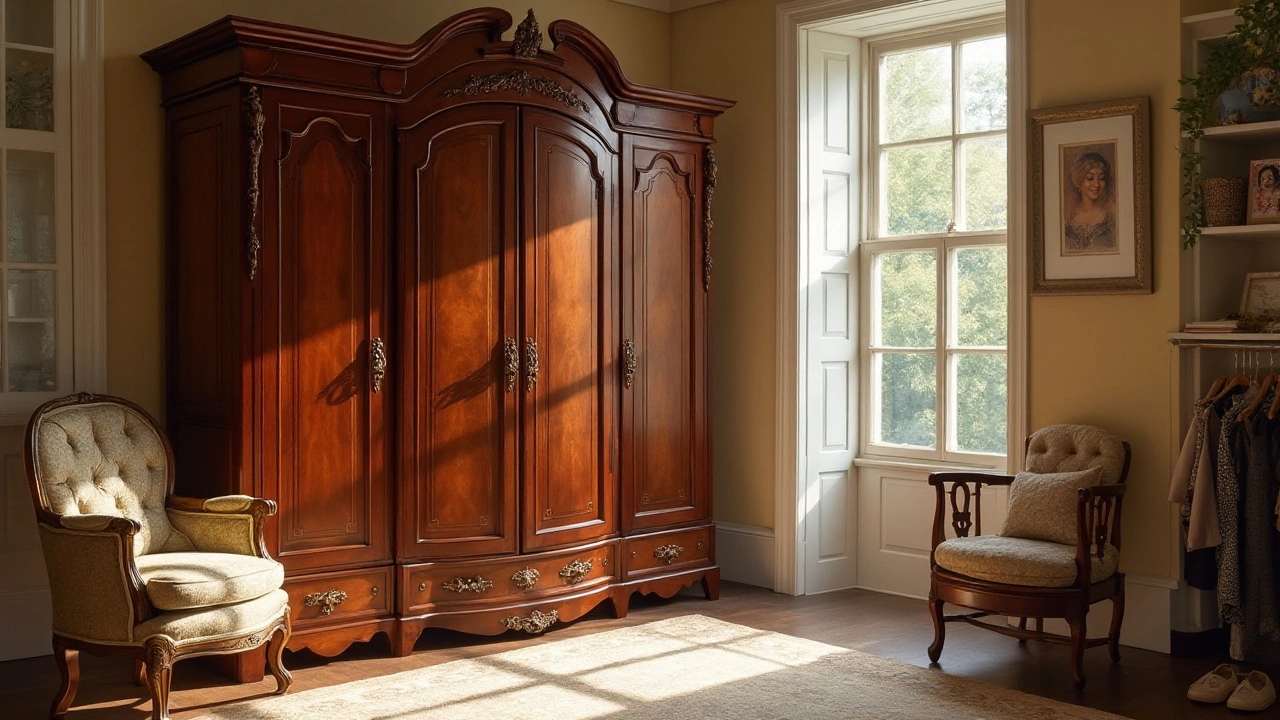Explore Language Guides and Word Tips
Ever stumble on a word and wonder if there’s a fancier way to say it? You’re not alone. People love a good term that sounds right, whether it’s for a closet, a piece of furniture, or a simple everyday object. This page pulls together the most useful language guides from our blog, giving you clear answers without the fluff.
Why Knowing the Right Word Matters
Choosing the right word can change how others see your idea. Say you’re describing a bedroom storage space. Calling it a "wardrobe" feels more polished than just "clothes closet," and it hints at a certain style. That tiny shift helps you paint a clearer picture, whether you’re writing a product description or chatting with friends.
Besides sounding better, the right term often carries extra meaning. An "armoire" suggests a tall, French‑inspired piece, while a "dressing room" feels like a private space for getting ready. Understanding these nuances helps you match words to the vibe you want.
Quick Language Tips from Our Posts
Here are some ready‑to‑use takeaways from the articles we’ve written:
- Fancy Words for Clothes Closet – Swap "closet" for "wardrobe," "armoire," or "dressing room" depending on size and style.
- What a Bookcase Chain Means – The chain wasn’t just for drama; it kept books safe in old libraries. Knowing that adds a cool story to any antique piece you talk about.
- ADHD Chairs Explained – When you need a chair that lets you move, look for "focus chairs" or "sensory seating" instead of just "ergonomic chair."
- Futon Health Facts – If you’re debating a futon, remember the term "futon" comes from Japan and means a thin mattress that folds. It’s useful when you’re comparing it to traditional mattresses.
Each tip is short, practical, and ready for everyday conversation. No need to dig through long articles – just grab the term you need and use it.
Beyond individual words, we also cover why certain phrases stick. For example, "weather‑resistant patio furniture" isn’t just a label; it tells you the material can survive rain, sun, and wind. Knowing that lets you set realistic expectations when you shop.
If you love learning about words, keep an eye on our blog. We regularly add new guides that dive into everything from "office chair alternatives" to "best coffee table styles." Every post follows the same simple rule: clear explanations, no jargon.
Got a word you’re curious about? Drop a comment or send us a question. We love turning everyday language puzzles into quick, useful answers. The more you experiment with language, the more confident you’ll feel in any setting – whether you’re arranging cushions on a corner sofa or describing a rustic wooden chest.
Bottom line: good language isn’t about sounding fancy; it’s about being precise and making your point stick. Use the guides here to level up your vocabulary, and you’ll notice how easy good communication can be.
Why Americans Call Wardrobes Closets: Unraveling the Language of Storage
The terms 'wardrobe' and 'closet' are often used interchangeably in America, leading to confusion about their actual meanings. This article explores the origins and differences between these two storage terms, highlighting historical influences and the evolution of language. Learn about the cultural and regional factors that have shaped the American preference for the term 'closet' and discover useful tips for organizing any wardrobe or closet space. Whether you're redesigning a bedroom or just curious about linguistic nuances, this guide offers valuable insights into the world of storage.
More
